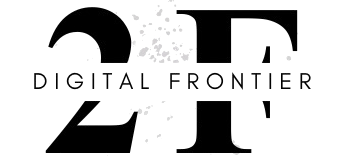As the world of work continues to evolve, the role of human resources is undergoing a significant transformation.
With the increasing adoption of artificial intelligence (AI) and automation, HR professionals are now equipped with cutting-edge tools to streamline processes, improve efficiency, and provide better employee experiences.
In this post, we\’ll explore the exciting world of human resources AI automation and uncover the benefits, challenges, and future prospects of this emerging trend.
The Evolution of HR Technology
The evolution of HR technology has been marked by a series of innovations that have transformed the way HR professionals work. From manual paper-based systems to cloud-based platforms and mobile apps, HR technology has become increasingly sophisticated and user-friendly.
The rise of artificial intelligence (AI) and machine learning has enabled HR systems to learn from data, predict outcomes, and provide personalized experiences for employees.
Today, HR technology is no longer just about automating routine tasks, but about empowering HR professionals to focus on high-value activities that drive business outcomes.
Benefits of AI Automation in HR
The benefits of AI automation in HR are numerous and varied. By automating routine tasks, HR professionals can free up time to focus on strategic initiatives that drive business outcomes. AI-powered chatbots can also provide 24/7 support to employees, reducing the need for human intervention and improving response times. Additionally, AI can help with data analysis, providing insights that inform HR decision-making and improve employee engagement. With AI, HR can also streamline processes such as recruitment, onboarding, and performance management, leading to improved efficiency and reduced costs.
Implementing AI-Powered HR Processes
Implementing AI-powered HR processes requires a structured approach. HR professionals should start by identifying areas where AI can add the most value, such as automating manual tasks or improving data analysis.
Next, they should develop a plan for implementing AI solutions, including selecting the right tools and technology, training employees, and monitoring progress.
A key consideration is ensuring that AI solutions are integrated with existing HR systems, and that data is secure and compliant with relevant regulations.
By taking a thoughtful and strategic approach to implementing AI-powered HR processes, HR professionals can drive business outcomes and improve employee experiences.
Challenges and Limitations of HR AI Automation
While HR AI automation has the potential to revolutionize HR processes, it is not without its challenges and limitations. One of the biggest challenges is ensuring the quality and accuracy of data used to train AI models.
Data quality issues can lead to biased or inaccurate outputs, which can have serious consequences for HR decision-making. Another challenge is addressing employee concerns about job loss or displacement due to automation. HR professionals must also be prepared to address technical issues, such as system integration and maintenance, and ensure that AI solutions are secure and compliant with relevant regulations.
Finally, HR professionals must be prepared to continuously monitor and evaluate the impact of AI on HR processes and make adjustments as needed.
The Future of Human Resources AI Automation
The future of human resources AI automation holds much promise, with many experts predicting that AI will become an integral part of HR in the coming years.
As AI technology continues to evolve, we can expect to see more advanced applications of AI in HR, such as predictive analytics and personalized employee experiences.
HR professionals will need to stay up-to-date with the latest AI developments and best practices to remain competitive and ensure that their organizations remain relevant in a rapidly changing world.
With the potential to drive business outcomes, improve employee experiences, and increase operational efficiency, the future of HR AI automation is an exciting and dynamic field that is sure to continue to evolve and shape the future of business.
Frequently Asked Questions about Artificial Intelligence in Small Business
What are the benefits of automating tasks for my small business?
Automating tasks frees up your team from repetitive activities, increasing productivity and allowing them to focus on strategic tasks.
What tools can I use for data analysis?
There are various tools available, such as Google Analytics, Tableau, and Microsoft Power BI, that help collect and interpret valuable data.
What are chatbots and how do they improve customer service?
Chatbots are virtual assistants that can answer questions and solve problems at any time, improving customer experience and freeing up your team.
How can I personalize the customer experience?
Through data analysis, you can better understand customer preferences and offer personalized recommendations and promotions.
Why is customer feedback important?
Feedback is essential for identifying areas that need improvement and adjusting your strategy to ensure customer satisfaction.
Is artificial intelligence accessible to small businesses?
Yes, there are various AI solutions accessible and scalable that can be implemented by small businesses to improve efficiency and customer service.

